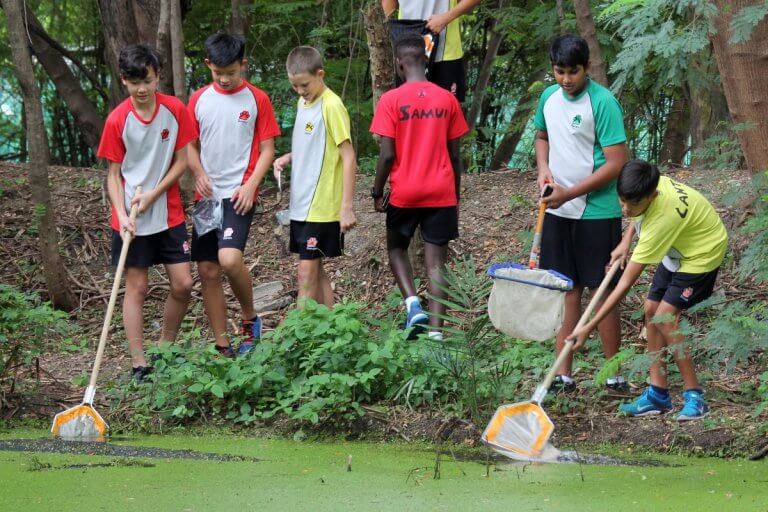
“A mind that is stretched by a new experience can never go back to its old dimensions.” – Oliver Wendell Holmes
Nuances in human learning styles are a well-known source of interest. A wealth of research studies and projects have revealed the science behind our thought and learning patterns, allowing us to identify the most effective ways for knowledge to be practised and retained. From visual to aural, verbal to physical, and everything in between – different methods suit different minds regardless of background or age.
But when it comes to lasting advantage, it’s learning that occurs outside the traditional classroom setting that relentlessly proves its worth. From inspiring enthusiasm to offering real-world context, to just making the curriculum ten times more enriching and engaging, students reap the benefits of outside study for many years to come. And the rewards it offers teachers is something often overlooked, allowing them to hone existing expertise through continuing professional development away from the classroom environment.

A report by Plymouth University revealed the positive impact outdoor education can have on childhood development, calling for the concept to be formally adopted by policymakers and reflected in global curricula. The report also suggested a new Framework for 21st Century Student Outcomes – a strategy that could be implemented through regular lessons taking place in a more rugged natural landscape.
The outcomes were grouped into five themes:
- A healthy, happy body and mind
- A sociable, confident person
- A self-directed and creative learner
- An effective contributor
- An active global citizen
“We need to be a little clearer about what forms of outdoor learning meet what purposes and aims (of curricula),” Sue Waite, reader in outdoor learning at Plymouth University, previously told BBC News.
“So rather than just being outdoors magically making things happen, activities such as residential outdoor experiences would be particularly effective for developing social skills and leadership,” she adds. “What we argue in the report is for people to think about the purpose and place (of the activity), as well as the people involved, in order to construct different forms of outdoor learning that will meet certain (teaching aims).

“This report maps the evidence to encourage researchers and policymakers to meet at the interface of research and policy…to shape a positive future for our children.”
The unique, on-campus Outdoor Classroom at Bangkok Patana School gives students from all years the invaluable chance to take part in true experiential learning within a natural setting. Here, young and eager minds explore and investigate the wonders of biodiversity – something only a functioning ecosystem can authentically provide.
Gaining insight and understanding of the wider world doesn’t just hold academic implications, but also arms learners with the knowledge needed to make considered decisions with regard to safeguarding both their local and wider environments. Rather than utilise textbooks or search engines for research, Bangkok Patana’s Secondary Biology students have explored the flora and fauna to find creatures they’d like to study. Fresh air and hands-on learning methods deepen students’ understanding to a level unlikely to be facilitated in the classroom, allowing students to produce powerful research before creating biological illustrations of their respective creatures.
Ecosystems and the nutrient cycle are key elements of science. For Year 5 students, getting out among the trees to see their ‘rainforest’ learning in action is critical to cementing this core scientific component, immersing students in the fascinating world of plants and the ways they adapt to the surrounding environment.

Alexander (Coke) Smith has been an environmental educator for 30 years. With experience teaching in Washington, California, China and now Bangkok Patana School in Thailand, Smith is one of the most respected outdoor educators on the circuit. He’s also an avid wildlife photographer and writer published in dozens of magazines and books worldwide, including such publications as the BBC’s Planet Earth Two and Science Magazine, among many more.
In Bangkok Patana School’s quest to offer Asia’s best learning facilities, the current Outdoor Classroom will grow to include a new building that will be completed within the next 12 months. What makes this classroom setting so unusual is that it’s being designed by a band of Year 13 Environmental Systems and Societies students who apply their classroom-acquired knowledge to a very practical, very real project. Drawing on everything learned both in and outside the classroom, and showing dedication to becoming conscious global citizens, the building will be made of materials that are 100 percent sustainable.
Outdoor learning is a unique experience that has many benefits, from encouraging curiosity and nurturing a love of science to developing empathy for the environment and heightening classroom outcomes. As the Bangkok Patana faculty explain: “We sincerely hope the Outdoor Classroom will further student’s development as passionate global citizens, concerned with the world and environment around them and committed to its protection.”
Follow Bangkok Patana School on Facebook, Twitter, YouTube, Issuu and Instagram







